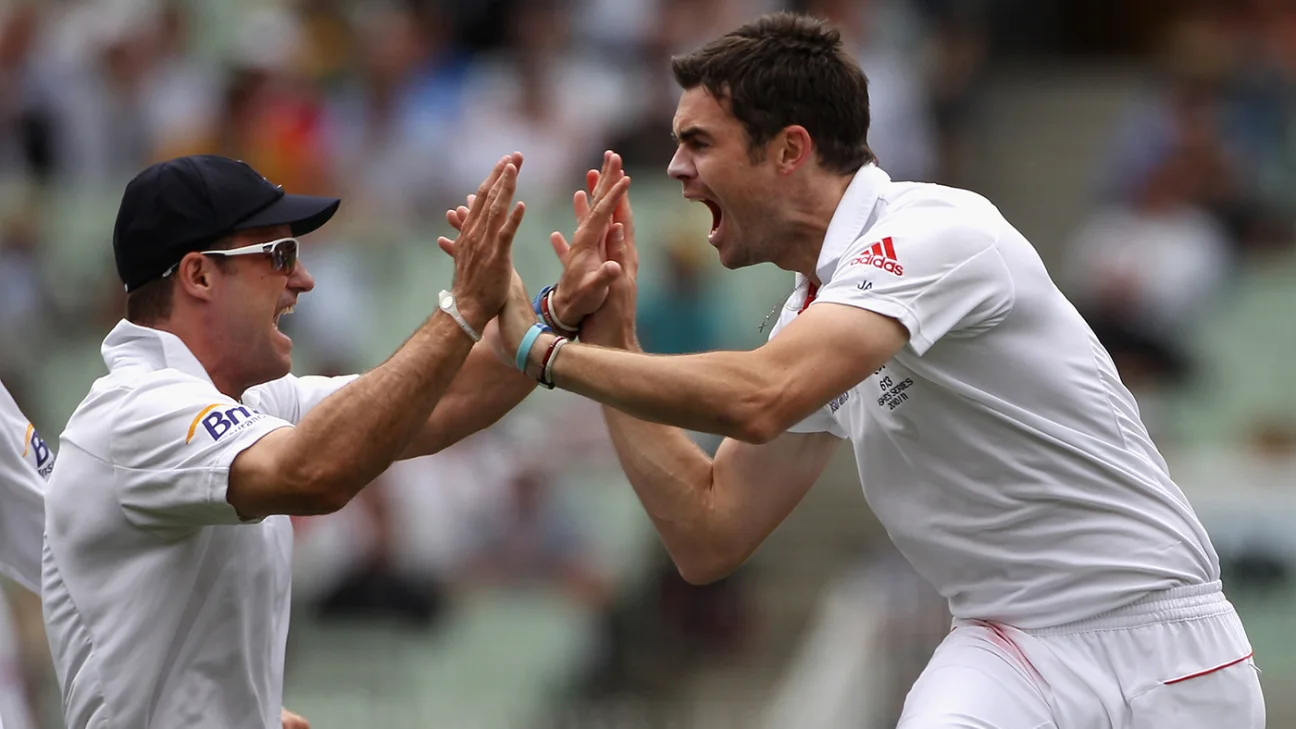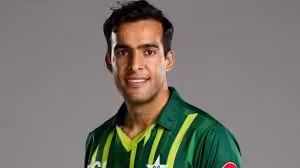At the Alfred Dunhill Padel Classic held at the prestigious Hurlingham Club in west London, former England cricket captain Andrew Strauss found himself in a reflective mood. Despite the tempting spread of spiced lamb, beef rump, and sparkling rosé on the “endless lunch” menu, Strauss couldn’t shake off the disappointment of a recent loss in a pro-celebrity padel match.
As he sat down in the hospitality tent, Strauss contemplated the recent news of his former teammate James Anderson’s impending retirement from international cricket after England’s first Test of the summer. Sharing a similar competitive spirit with Anderson, Strauss understood the mixture of emotions that come with stepping away from the game.
For Strauss, the event provided an opportunity to reconnect with Anderson and offer his congratulations on an extraordinary career. He expressed his hopes for Anderson to receive the fitting farewell he deserves at Lord’s, acknowledging Anderson’s remarkable resilience and skill as one of the greatest bowlers of all time.
Recalling their time together on the field, Strauss highlighted Anderson’s invaluable contributions to the England team during his captaincy, particularly in securing notable victories such as the 2010-11 Ashes series and subsequent successes against India. Strauss emphasized Anderson’s dependability, competitive fire, and unwavering commitment to the team’s success.
Looking ahead to England’s cricketing future, Strauss endorsed the decision made by the management team, led by Rob Key, to transition towards a new generation of players. Recognizing the challenges of replacing senior bowlers like Anderson and Stuart Broad, Strauss emphasized the importance of investing in emerging talent and cultivating leadership within the team.
Reflecting on his own experiences in cricket administration, Strauss acknowledged the ongoing discussions surrounding the structure of domestic cricket and player workload management. While some recommendations, such as reducing the number of Championship fixtures and implementing changes to the schedule, have yet to be fully realized, Strauss remains hopeful that the concerns raised by players will be addressed moving forward.
Despite stepping away from the forefront of English cricket, Strauss remains involved in the sport through his advisory roles and continues to support initiatives aimed at promoting the game’s growth. Embracing his new perspective from outside the cricketing bubble, Strauss remains passionate about the sport while appreciating the broader context of life beyond the boundary.



